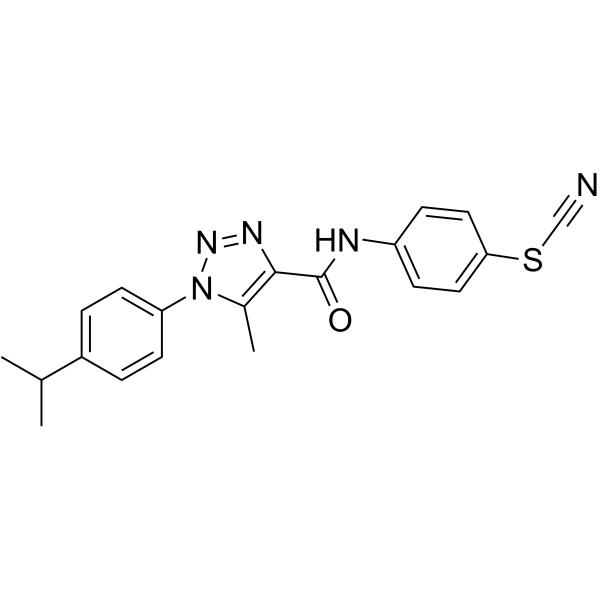| In Vitro |
Anticancer agent 83 (compound 4a) (0.01-100 μM; 24 h) showing strong activity towards human colon carcinoma HCT116 p53−/− cells with deletion of P53 gene (GI50=8.4 μM), human epidermoid cervix carcinoma KB3-1 (GI50=7.4 μM), human ovarian carcinoma Skov 3 cells (GI50=10 μM), and human chronic myelogenous leukemia K562 cells (GI50=5.4 μM)[1]. Anticancer agent 83 (0.5 μM; 24 h) interrupts DNA stability and induction of apoptosis in Jurkat cells, and decreases mitochondrial membrane potential[1]. Cell Viability Assay[1] Cell Line: Human colon carcinoma HCT116 p53−/− cells with deletion of P53 gene, human epidermoid cervix carcinoma KB3-1, human ovarian carcinoma Skov 3 cells, and human chronic myelogenous leukemia K562 cells Concentration: 0.01, 0.1, 1, 10, 100 μM Incubation Time: 24 hours Result: Inhibited cell viability in different cells with GI50s of 8.4 M (HCT116 p53−/−), 7.4 M (KB3-1), 10 M (Skov 3), and 5.4 M (K562), respectively. Immunofluorescence[1] Cell Line: Jurkat cells Concentration: 0.5 μM Incubation Time: 24 hours Result: Induced morphological changes (including apoptotic bodies, membrane blebbing, chromatin condensation), and DNA fragmentation in Jurkat T-cells.
|
